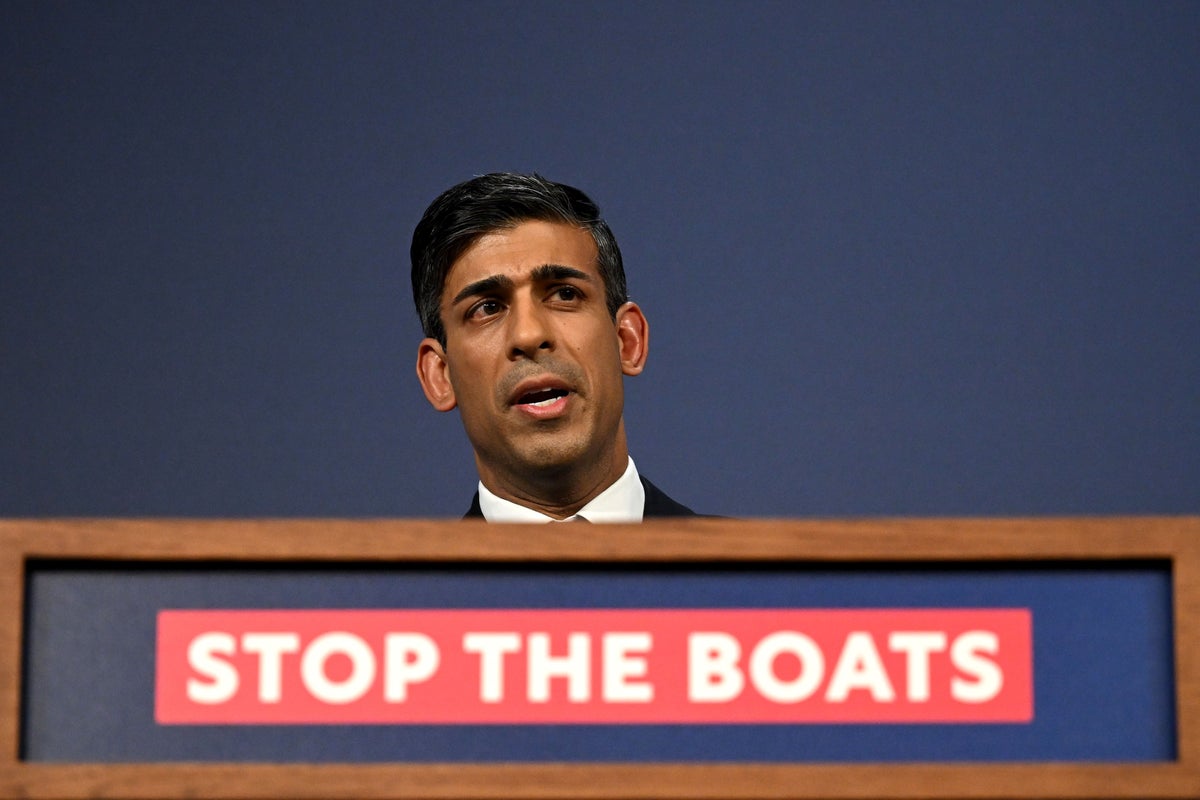
The United Nations’ refugee agency has urged MPs and peers to block Rishi Sunak’s “profoundly” concerning plan to tackle small boat crossings.
The UNHCR said the Illegal Migration Bill amounted to an “asylum ban” which would prevent people fleeing war and persecution from seeking refuge in the UK.
“We urge the Government, and all MPs and peers, to reconsider the Bill and instead pursue more humane and practical policy solutions,” the agency said.
The legislation “would be a clear breach of the Refugee Convention and would undermine a longstanding, humanitarian tradition of which the British people are rightly proud”, the UN agency said.
The Government’s approach, outlined by Home Secretary Suella Braverman in Parliament on Tuesday, has been widely condemned by charities and human rights organisations.
The equalities watchdog questioned the approach being adopted, saying it risks “undermining the core principle of the universality of human rights”.
The Equality and Human Rights Commission added: “We welcome the Government’s intention to remain within the European Convention on Human Rights (ECHR).
“We are nonetheless concerned that the legislation risks breaching the UK’s legal obligations under the Refugee Convention and ECHR.”
The plan is simply “not the British way of doing things”, the Refugee Council said.
We need an approach that replaces the chaos and cost of what we have now and focuses on compassion and competence— Enver Solomon, Refugee Council
Its chief executive Enver Solomon suggested the plans were “more akin to authoritarian nations” such as Russia and insisted the proposals would not stop desperate people crossing in small boats but would instead leave “traumatised people locked up in a state of misery being treated as criminals and suspected terrorists without a fair hearing on our soil”.
He said the new legislation “ignores the fundamental point that most of the people in small boats are men, women and children escaping terror and bloodshed from countries including Afghanistan, Iran and Syria”.
He added: “It is an approach more akin to authoritarian nations that walk away from international human rights treaties, such as Russia and Belarus, and is no way to treat those who have lost everything through no fault of their own.
“We need an approach that replaces the chaos and cost of what we have now and focuses on compassion and competence, creating safe and orderly routes for refugees to reach the UK, such as refugee visas, and always give people a fair hearing so their rights are respected.”
Amnesty International UK decried the plan – which it described as an attempt to disqualify people’s asylum claims en masse regardless of the strength of their case – as containing nothing “fair, humane or even practical” and described it as a “shocking new low”.
Steve Valdez-Symonds, Amnesty International UK’s refugee and migrant rights director, said: “It’s frankly chilling to see ministers trying to remove human rights protections for groups of people whom they’ve chosen to scapegoat for their own failures.
“People fleeing persecution and conflict will be irreparably harmed by these proposals, while the UK is setting an utterly terrible example to other countries around the world.”
Comparing it to the Government’s efforts to send migrants to Rwanda, it branded the plan a “cynical attempt to dodge basic moral and legal responsibilities” and accused the Government of “callously using vulnerable people for its own political ends”.
Amnesty echoed the Refugee Council in a call for accessible schemes “so people seeking asylum do not have to rely on people smugglers and dangerous journeys”.
Christian Action Research and Education (CARE) warned that it had serious concerns the proposals “will do nothing to help victims of human trafficking being brought to our shores, or those already here who are currently being exploited”.
The organisation’s trafficking policy expert Rebecca Stevenson said: “In fact, the approach signalled by the Government could undermine efforts to identify victims and ensure that justice is served.
“This legislation could create a closed loop that fuels human trafficking. People being exploited already face huge barriers to coming forward. They will find it even more difficult to do so when seeking help could see them immediately deported. Many will conclude it’s better not to speak out at all.”
But the think tank Migration Watch UK, which has long argued the UK’s level of immigration is neither sustainable nor well managed, welcomed the Bill and urged MPs and peers not to “neuter” the legislation as it came before Parliament.
Alp Mehmet, chairman of the campaign group, said: “As it stands, the small boats Bill has many of the right ingredients to solve the Channel crisis.
“However, it is vital that it is not neutered as it makes its way through Parliament. Enshrining in statute a requirement to detain and remove illegal arrivals is a vital first step.
“Furthermore, establishing the precedent that illegal entrants will be unable to claim asylum or other forms of refuge will serve as a powerful deterrent.
“It is equally important, of course, to plug the huge gaps created by the Human Rights and Modern Slavery Acts. These are all essential elements if the tide of illegal boat arrivals is to be stemmed.”







